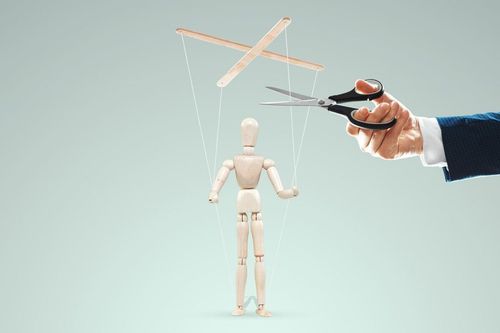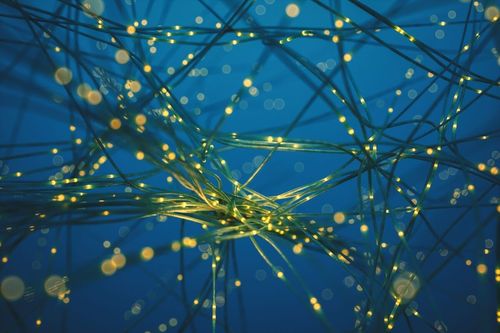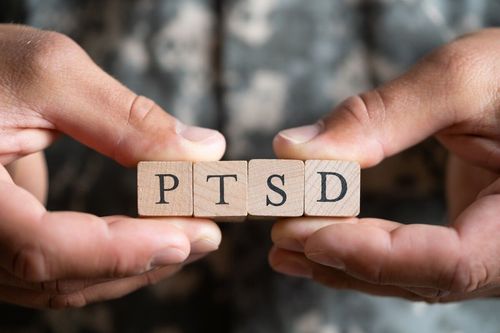Healing narcissism is extremely difficult. One of the main problems is that people with narcissistic traits are often unwilling to change. They manipulate themselves and avoid honest self-reflection. This lack of insight makes it almost impossible to recognize one's own narcissism and take the necessary steps to change.
In addition, those affected often lack interest in healing. The reason for this is that narcissism is often associated with a feeling of power and control. Many people find this feeling pleasant and do not want to lose it. However, healing requires a willingness to let go of precisely this manipulative power and instead honestly confront one's own personality. The process therefore requires not only insight and the willingness to change, but also an awareness of what is at stake: renouncing manipulative power and striving for authentic self-awareness.
My name is Rico Brunner, I am an energy field therapist, and in this article, I address the question of how narcissism can be healed and what challenges are involved in the process.
What are the causes of narcissism and how can they be tackled?
The causes of narcissism can be divided into two main categories. One group of people develop narcissistic traits because they are emotionally wounded or overwhelmed. These people have not managed to take a different path that would have prevented them from slipping into narcissism. Their behavior often arises from an inner pain, and they are usually more open to dealing with their narcissism.
The second group develops into narcissism out of a certain malice, negativity or indifference towards others. Such people take pleasure in oppressing others, or they consciously strive to inflate themselves. Their motivation often stems from a quest for control and power, rather than coping with their inner pain.
It is important to ask questions such as: "What motivates a person who displays narcissistic traits?" or "What is the basic prerequisite for this development?" People who have become narcissistic due to emotional trauma are often more willing to deal with their behavior. This increases their chances of recovery compared to those who have developed their narcissistic traits out of conscious negativity.
Can narcissists be aware of their disorder?
Yes, narcissists are aware of their disorder, I am one hundred percent sure of that. However, they lack awareness of the effects of their behavior. The reason for this lies in the lack of self-reflection, which no longer occurs naturally in narcissists. As a result, narcissists remain trapped in their own "game". They do not reflect on the big picture, but only on the mechanisms of their game, which severely limits their perception and understanding.
This means that although a narcissist recognizes that they are narcissistic, they do not realize the consequences of their behaviors for those around them - which is often not really important to them. At the same time, they lack insight into how their narcissism affects them. In this regard, narcissism can be seen as a form of self-destruction. It is precisely this limited perception and lack of awareness that makes it difficult to heal narcissism.
What first steps help to heal narcissism?
If someone has narcissistic traits and is trying to overcome them, the first step begins with self-reflection. This can be done by writing down one's own actions and feelings. Two key questions should be considered: "What impact do my actions have on my own life?" and "How do they affect the lives of the people I am in contact with?" This process creates a greater awareness of the consequences of one's own behavior.
Overcoming narcissism requires a broader understanding of the effects that the behavior has on oneself and others. An honest decision by the narcissist is crucial: "Do I simply not care about the effects of my behavior?" In many cases, this indifference persists. However, if this is not the case, there is a chance of healing.
A narcissist who is willing to engage in this process can work in small steps to act less and less narcissistically. This step-by-step approach helps to develop healthier and more compassionate behavior - not only towards others, but also towards oneself. In this way, a balance can gradually emerge that leads to a more normal and sustainable life.
Does age play a role in the healing of narcissism?
Age plays a role in the healing of narcissism but is not the decisive factor. Much more important is the intensity of the narcissism. If the narcissism has reached a particularly high level, healing becomes almost impossible in my experience. This is because there is usually no willingness for self-reflection when narcissism is very predominant. The narcissist sees no point in changing, even if their environment wants them to. Instead, they can adapt strategically to camouflage their behavior - but real change does not happen.
However, there is no set age at which healing is impossible. A young person can be so deeply entrenched in narcissism that they cannot find a way out of it, while a person over 50 still has the opportunity to develop and overcome their narcissism. The decisive factor is how firmly someone is stuck in narcissism and whether they are open to change.
Narcissism is not a static condition; it can change over the course of a person's life. A narcissist can exhibit varying degrees of narcissistic traits at different stages of their life. It is theoretically possible for a young person who is strongly narcissistic to become less narcissistic over the years through experience or self-reflection. In such cases, there is a chance of recovery, even if this is rare.
However, it is important that those around a narcissist do not fall into the trap of hoping that the narcissism will automatically heal itself through patience and support. Such expectations often lead to great disappointment and emotional injury. Healing is only possible if the narcissist himself feels the desire to work on himself.
Can narcissism really be cured through love and empathy?
No, narcissism cannot be cured by love. The fundamental problem of narcissism is not a lack of love or affection, but a pattern of behavior in which self-interests are asserted at all costs - often at the expense of others. Narcissists are often trapped in their own mechanisms and are overwhelmed, which is part of the complex picture of narcissism.
However, it is dangerous to believe that unconditional love can cure a narcissist. As a rule, such love leads to the narcissist consuming it, manipulating it and controlling the loving person like a puppet. This often reinforces the narcissist's behavior and can be harmful to the person helping.
There is only a real chance of healing if the narcissist is prepared to accept help - and from someone who is neutral towards them. This person should show neither excessive empathy nor complete coldness, but should adopt a clear, stable attitude that does not play along with the narcissist's manipulative "games". Only in this way can the narcissist learn to come to terms with their behavior and allow change.
Whether this help takes place in a friendship or in professional therapy does not play a major role. However, it is almost impossible to give lasting help to a narcissist in a friendship, as this is often extremely difficult and stressful.
How can the psychological injuries caused by narcissistic abuse be healed?
The psychological injuries caused by narcissistic abuse are often particularly profound. Narcissists have the ability to make their counterpart feel that they themselves are to blame for the problems that have arisen. This results in a double injury: the original injury caused by the narcissist is compounded by self-doubt and feelings of guilt. The victim begins to think: "Maybe I really did have a part in what happened." This dynamic leads to their own injuries being repressed and internalized even more strongly.
A key step towards healing is the realization that these injuries are not the victim's fault. The narcissist's actions have nothing to do with the person affected but are an expression of the narcissist's own behavioral pattern. This clarity can help to alleviate the emotional burden and begin the healing process.
Healing such injuries often involves working on the energy field to repair the deeper emotional wounds. At the same time, it is important to protect yourself from further encounters with narcissists. An important point here is to understand that it is an illusion to be able to completely isolate oneself from the manipulation of a narcissist. Narcissists are highly specialized in manipulating and hurting others. A normal person with everyday experience is often no match for this behavior. The best protection is therefore to avoid contact and create a conscious distance.
What role does self-love play in healing narcissistic injuries?
Self-love plays a central role in healing injuries caused by narcissistic abuse. Narcissists have a special ability to undermine other people's self-esteem. They make the other person feel inadequate - that the problems would disappear if only they were "better" or "different". This behavior is aimed at systematically destroying basic trust, self-love and self-esteem to be able to manipulate and control the person concerned more easily.
Precisely because narcissists specialize in undermining self-love, rebuilding self-love is one of the most important steps to healing. Anyone who has been hurt by a narcissist must learn to value and accept themselves, regardless of the destructive messages that have been conveyed. Self-love strengthens inner balance and helps to protect against further manipulative influences.
Conclusion – How Can Narcissism Be Healed?
Healing narcissism is extremely complex, as those affected often lack the necessary insight and willingness to change. Honest self-reflection and a conscious decision to let go of manipulative control are essential prerequisites for healing.
While narcissists who developed these behaviors due to emotional wounds may be more open to change, healing is nearly impossible for those whose narcissism is based on conscious control or negativity.
For victims of narcissistic abuse, strengthening self-love and recognizing their own innocence are key to healing emotional wounds in a lasting and meaningful way.






